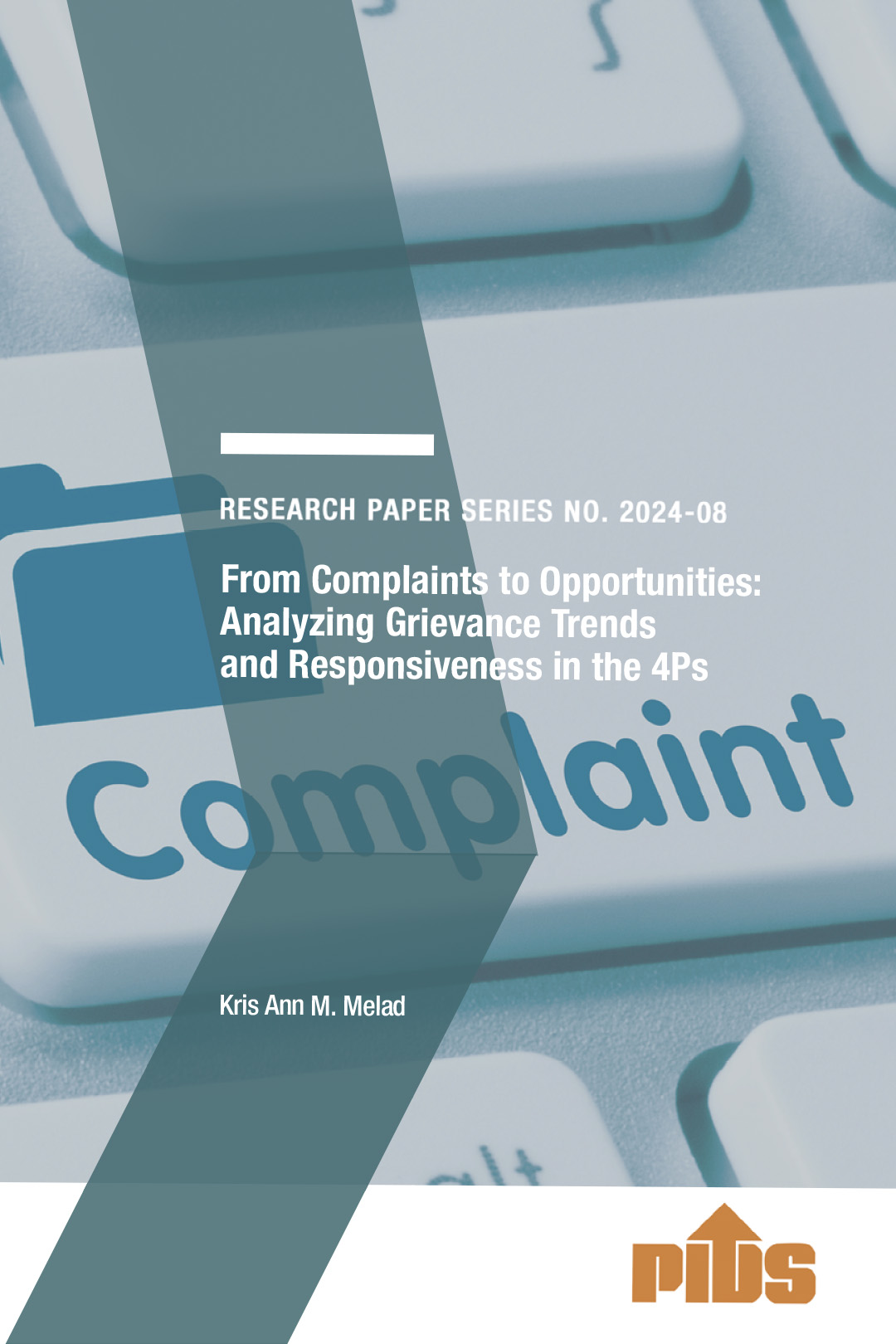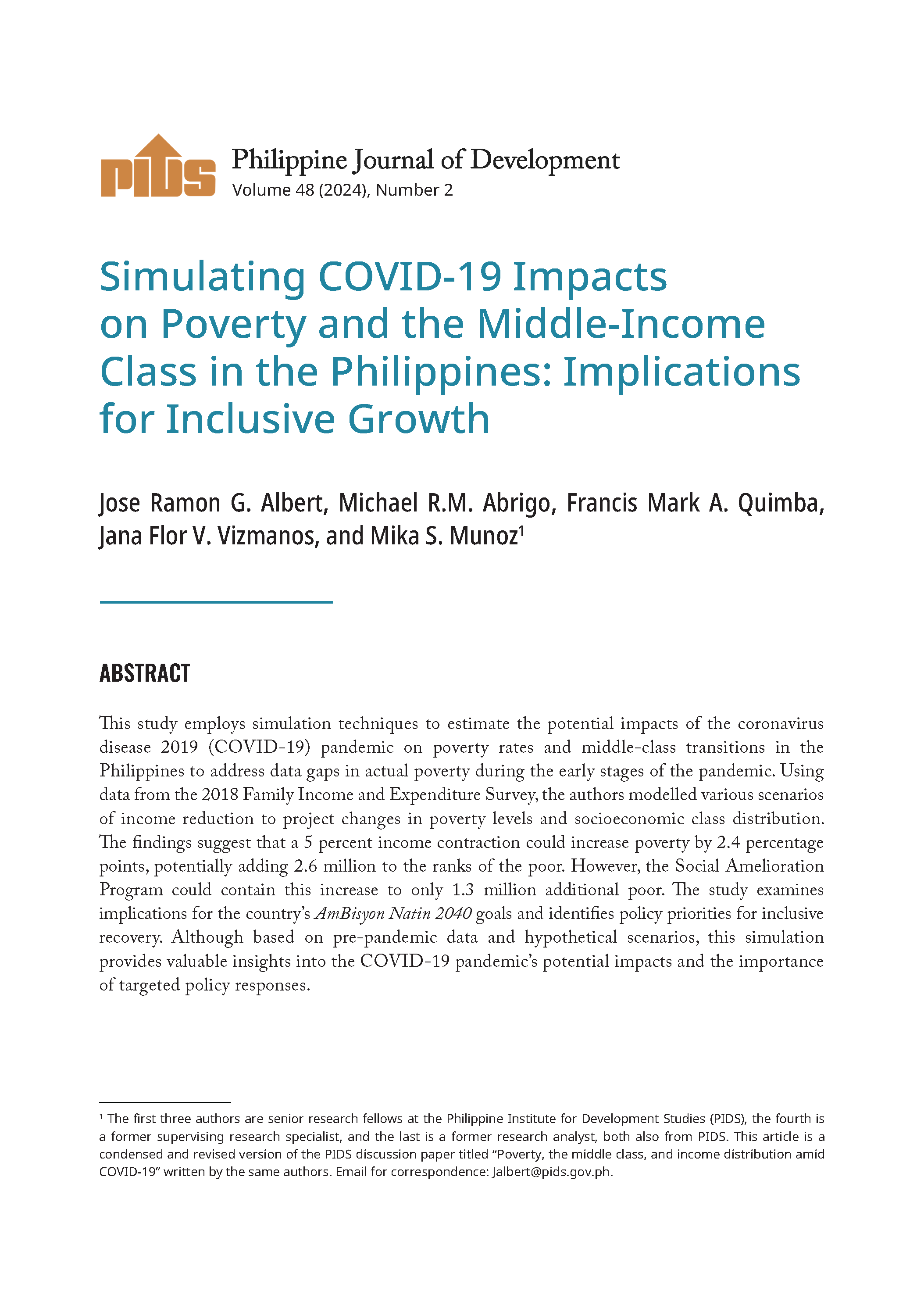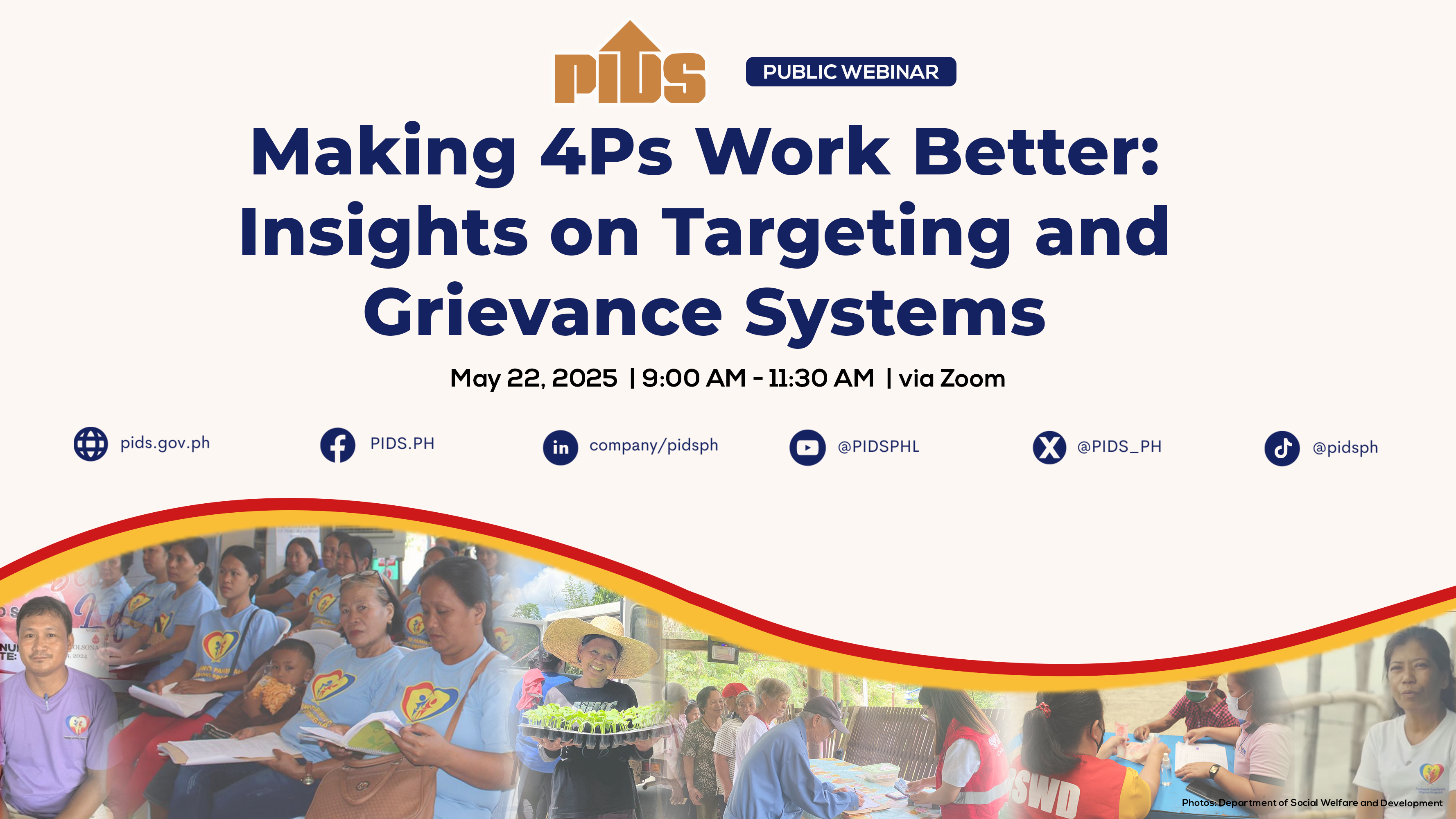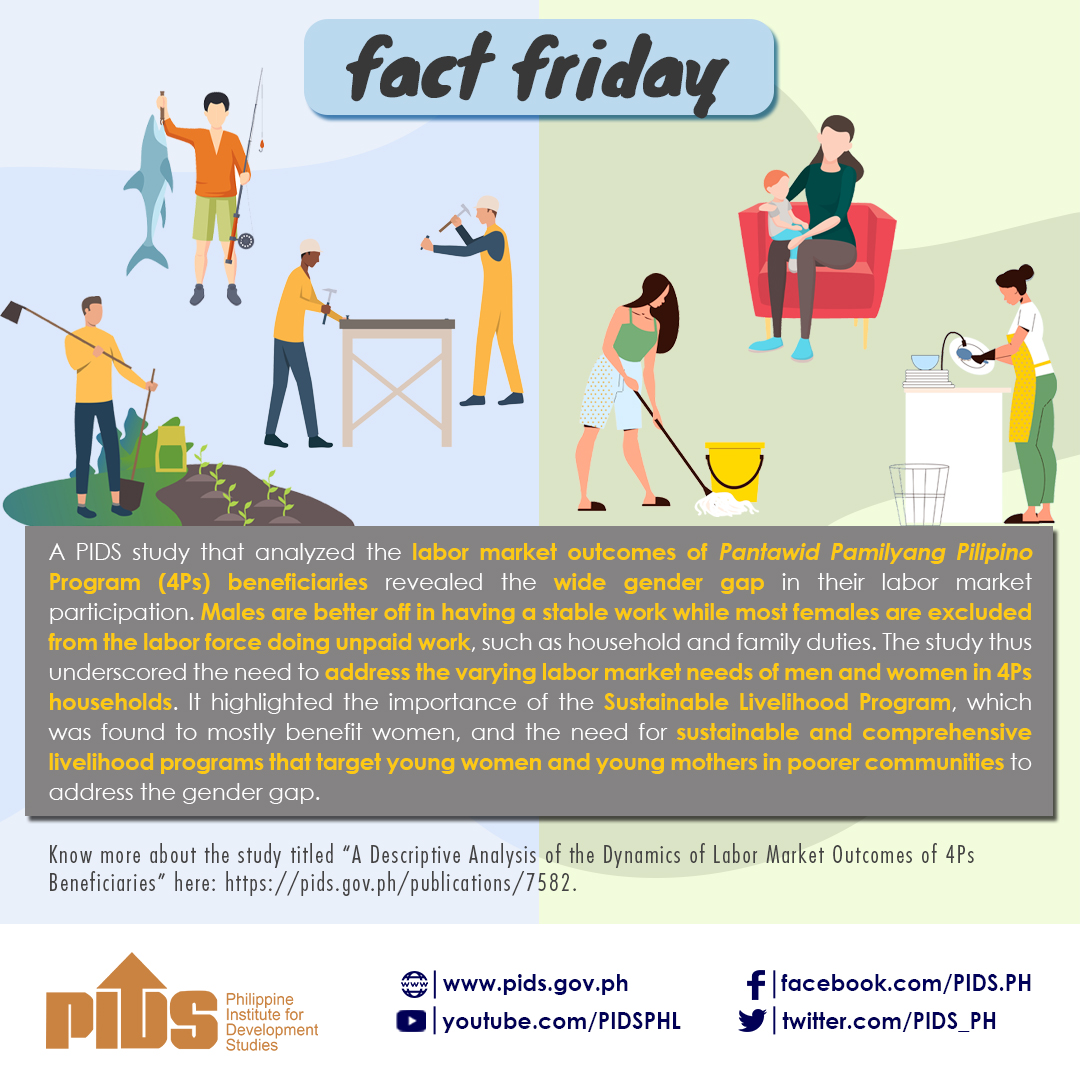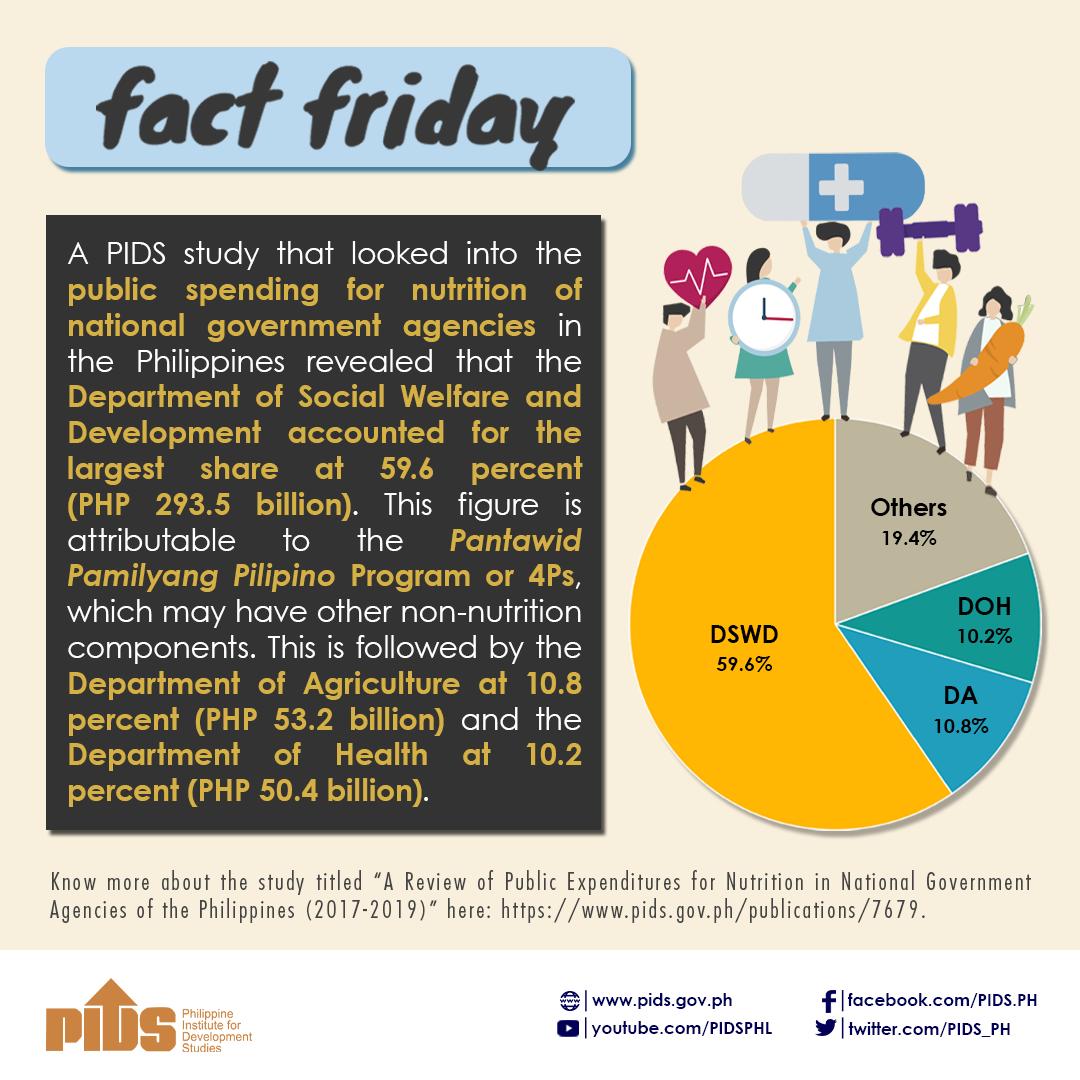In the course of a recent study, a research team I led often got an earful on how recipients of the government’s 4Ps cash transfers have supposedly become “lazy.” The Pantawid Pamilyang Pilipino Program (hence 4Ps) is our country’s version of the conditional cash transfer (CCT) now commonly used in many countries in Latin America, Africa, and Asia. It goes by many names: It is known as Bolsa Familia in Brazil; Oportunidades in Mexico; Solidario in Chile; Juntos in Peru; Minhet El-Osra in Egypt; Program Keluarga Harapan in Indonesia; and many more. CCTs have been around since the 1990s, are now used in over 70 countries, and have accumulated a substantial body of literature evaluating their effectiveness.
In the Philippines, 4Ps was the flagship poverty alleviation program of the Arroyo administration; subsequent administrations have since sustained and scaled it up. In principle, it seeks to ensure that children of poor Filipino families obtain education from pre-school to the secondary level by incentivizing their parents with an amount to help support their schooling. Other conditions that beneficiaries must comply with include regular visits to the health center and attendance in monthly “Family Development Sessions.” As receipt of the grant is conditioned on meeting these requirements, it is not an outright dole-out, as wrongly perceived by many. I prefer to describe it as a government incentive for the family to make the most meaningful investment it can make on its own long-term welfare, through better health and education of the children.
But is receiving the regular cash assistance making these parents lazier, and work less? The allegation is common, and while my research team constantly heard it in our field work, it was never the beneficiaries themselves who said so. It was either employers faced with a shortage in farm labor (and thus had to pay more for it, or settle for less or none of it), or nonbeneficiary neighbors (one wonders if they were merely expressing a subliminal envy for their beneficiary peers).
My economist colleague Dr. Roehl Briones, who is steeped in rural development literature, texted me that “there is no evidence, anywhere, that CCT-type programs have affected labor supply. Nobel Prize co-winner (Abhijit) Banerjee has written extensively on this.” Banerjee and his co-awardees are noted for using randomized control trials, a statistically sound method similar to experimental trials employed in medical and other research, to obtain solid numerical evidence on the determinants of poverty around the globe. In a 2017 study titled “Debunking the Stereotype of the Lazy Welfare Recipient: Evidence from Cash Transfer Programs Worldwide,” Banerjee and his team conducted randomized control trials on seven CCT programs in six countries, including the Philippines’ 4Ps. Their conclusion: “Across the seven programs, we find no observable impacts of the cash transfer programs on either the propensity to work or the overall number of hours worked, for either men or women.”
The latest of three evaluations done on our 4Ps since it began is summed up in two Philippine Institute for Development Studies papers by Aniceto Orbeta, Kris Ann Melad, and Nina Victoria Araos. Beneficiaries disputed the characterization that they have become dependent on the cash grants. Aware that the grants are meant mainly for the education and health expenses of their children, “they posit that the grant amount is not enough… as their sole source of income and they still need to work to fulfill all the needs of their household.” With a monthly grant of P500 for health and nutrition and P300 per school-aged child, it’s inconceivable—and indeed an insult—to expect beneficiary parents to see this as enough to lead them to stop working.
Banerjee et al. also asserted that no evidence exists that CCTs induce more spending on “temptation goods” like alcohol and tobacco. They conclude: “The available evidence implies that cash transfer programs do not induce the ‘bad’ behaviors often attributed to the poor…”
My take? I think the poor deserve more respect than what they seem to be getting from the rest of us.

